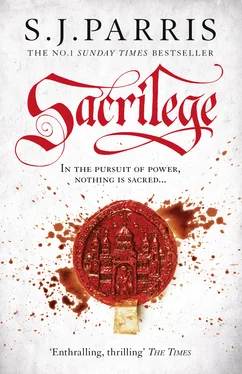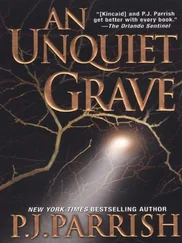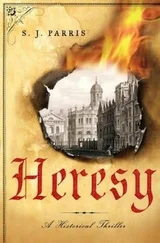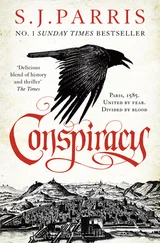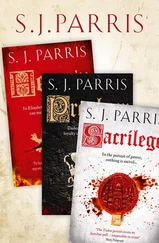‘Bruno?’
‘Yes?’
‘From now on,’ she said, ‘let us not speak about Oxford. The past is gone. I was someone else then. I want to forget everything that happened there. Those terrible murders,’ she added, after a while, barely audible. ‘And then my husband. Violent death seems to touch everyone who comes near me.’
There was a slight break in her voice, a note of despair that restrained me from telling her not to exaggerate. Sophia had known more than her share of misfortune in her young life, but this century is indifferent in its cruelty, and we are taught to regard suffering as our due. Her father and her aunt would no doubt say that she had been the author of her own troubles, that they were a punishment from God because she would not be submissive as a woman should. Someone with less orthodox views – someone like me, for example – might more generously suggest that Sophia’s only fault was to be born with intelligence, an enquiring mind and a yearning for independence, in a world where those qualities are seen as positively dangerous in anyone, let alone a girl. There was only one woman in England who had the freedom to indulge her intellect and her passion, and even her throne could not protect her from daily threats upon her life. I said none of this.
‘But your past has shaped who you are.’ I turned on to my side so that I was facing her bed; despite the darkness, I knew she was looking at me. ‘You carry it with you, even if you would rather not.’
‘No.’ She spoke firmly. ‘I want only to begin again, once this is all over. I will be no one’s daughter, no one’s mother, no one’s sister, no one’s wife. Everyone has gone. I wish to live like you, Bruno, with no ties. It must be a wonderful thing, to have such freedom.’
I said nothing. She was twenty years old; how could I make her understand that exile was not freedom, that solitude was not necessarily liberty? I was tired of travelling; the yearning to belong somewhere, to rest in the knowledge of a secure position, seemed to grow stronger with every year that passed. What she saw as my freedom had been forced on me by the Roman Inquisition.
I shifted again on to my back, the straw pricking at my skin through the thin sheet, and watched the frail moonlight slowly spread across the ceiling. Sophia’s breathing slowed again; occasionally she gave a little moan in her sleep, a reminder of her warm presence, while I lay awake, tormented and watchful, my ears straining for any sound of a tread on the stairs.
We reached Canterbury by noon on the fourth day. Alone, I could have made the journey in less time, but Sophia was increasingly suffering the pains of long hours on horseback, and though she never complained, I reasoned it was better to take the journey at a slower pace, for her sake and for the horses’. My anxiety only increased each time we rode into an inn yard at dusk. The second night we spent in Rochester, a small town straddling the river estuary, where I bought some cloth and had it cut into makeshift kerchiefs we could tie around our faces to keep from breathing the dust. The third night we stopped in a village by the name of Faversham, where the clamour of the gulls and cool salt breeze made me long for the nearby sea. That night, she stood by the open window for a long time after I had blown out the candle, looking into the blue-black distance without speaking; when I tentatively approached and she turned, I realised that she was crying. I didn’t ask why, merely allowed her to rest her forehead against my shoulder until the moment passed. Before she got into bed, she touched my hand lightly, twining her fingers with mine for the space of a breath, as if to say thank you. Neither of us spoke, but I felt a surge of hope as I stretched out uncomfortably on my pallet, as if something essential had been communicated without the need for words.
We kept to ourselves, spoke as little as possible in the company of strangers, and survived the three nights and the hard ride with few unwelcome attentions. In every village where we broke our journey to water the horses and buy bread, rumours of the plague travelled before us, quick as flames through dry tinder; the old pilgrim road crawled with refugees clutching few belongings and less money, and the taverns were closing their doors to many. The townspeople wanted as little as possible to do with travellers from London; we were fortunate that money still spoke with a voice louder than fear.
A mile or so outside the walls of Canterbury we stopped in the village of Harbledown to let the horses drink. It was a pretty enough place, surrounded by orchards, no more than a few houses straggling along a single street which rose steeply towards the city in the distance. We led the horses off the road by an old almshouse and found a spot in the shade to sit down and prepare ourselves for the riskiest part of our journey. My head ached and my throat was gritty with dust, despite the kerchief.
‘If the plague fears have reached Canterbury, we may find them more vigilant than usual at the gates,’ I said, passing Sophia a leather bottle of small beer, warm now from hanging by my side along the road, but better than nothing. ‘Though the fact that everyone has a cloth tied around their face ought to work to our advantage. If they stop us, just keep your eyes down, your cap low over your face, and your mouth shut. We can pretend you are a mute. You shouldn’t find that too hard,’ I couldn’t help adding, at the sight of her sullen expression.
She reached for the bottle, held my gaze for a long moment, enough to be sure that I knew she was still angry with me, then took a swig and looked pointedly away, squinting into the sun above the trees. For the best part of an hour she had refused to speak, ever since I had broken the news to her that morning that she would not be able to stay with me in Canterbury and would need to presume again on the hospitality of her Huguenot friends. I had expected her to be displeased by the idea, knowing she would fear for their safety, but I had not anticipated the flash of fury it provoked. She had railed at me, accusing me of reneging on my promise to help her, until I pointed out sharply that we were not the only travellers on the road and that shrieking like a girl-child was the best way to give herself up before we even reached the gates. She had fallen silent after that and remained so, with the occasional simmering glance from beneath her cap, until we stopped.
Now she propped herself up on one elbow and regarded me dispassionately before offering me the bottle. I took a brief sip and winced; my stomach had been feeling queasy since I first awoke and the heat of the day was not improving the symptoms.
‘What if the French houses have been searched, looking for me?’ Sophia said. ‘Someone will have told the constables that I was friends with Olivier, I am sure of it.’
‘Then you should be all the safer. You have been gone from Canterbury more than a fortnight; if the authorities have already searched the city, they will not expect you to return.’
‘I still don’t see why I can’t come with you, if I am supposed to be your servant.’ She tore up a clump of grass with some force, then flung it away as if she found it offensive.
‘Because innkeepers, and especially their wives, are the most professionally inquisitive people in all creation,’ I said impatiently. ‘Their whole business is to observe and speculate on the travellers who come through their doors. We’ve been lucky so far, but any more than one night in the same hostel and someone will deduce right away that Kit is not what he claims to be. No.’ I shook my head. ‘Lie low with the Huguenots. I will be enough of a curiosity on my own.’ I rubbed a hand across my chin; four days’ growth of dark beard only reinforced the foreignness of my appearance, especially now that the sun had tanned my face to a colour it had not been since I was a boy running free all day on the slopes of Monte Cicada. My hair, too, had been neglected over the past weeks when I was preoccupied with finishing my book; I could not remember the last time I paid a visit to the barber, and it had grown so that it fell across my eyes at the front and curled over my collar at the back. ‘One of my first tasks once we are inside the city gates must be to get a shave and a haircut,’ I complained, pushing my fringe back from my face.
Читать дальше
